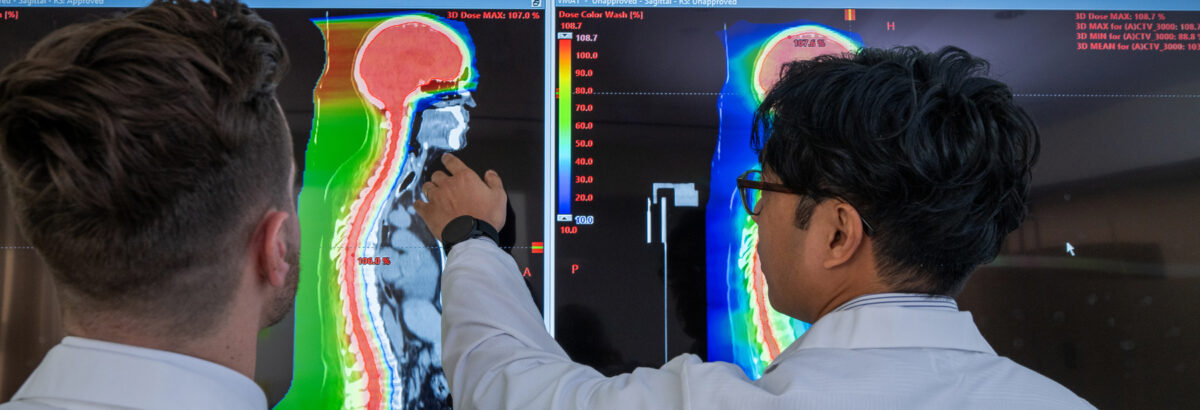Minimizing Side Effects
When lung cancer is treated with conventional radiation, it is difficult to deliver a high enough radiation dose to control the cancer without also damaging the normal lungs, esophagus, heart and spinal cord.
Proton therapy can more effectively treat these tumors—particularly larger ones— while better protecting critical structures from radiation. As a result, protons can minimize side effects such as lung inflammation (pneumonitis) or scarring (fibrosis), difficulty swallowing, heart complications, hospitalizations, and other side effects that are commonly seen with conventional lung cancer treatment.
Lung and Thoracic Cancers We Treat Include
- Non-small cell lung cancer (NSCLC)
- Small cell lung cancer (SCLC)
- Malignant mesothelioma
- Thymomas and thymic carcinomas
- Carcinoid and neuroendocrine tumors
- Cardiac tumors
- Thoracic sarcomas
- Recurrent thoracic cancers
Lung and Thoracic Tumors Proton Therapy FAQs
Read our frequently asked questions about proton therapy for head and neck tumors.
A New Chapter Begins After Lung Cancer
As a non-smoker, Anna was stunned when she was diagnosed with Stage IIIA lung adenocarcinoma. Genetic testing provided answers, while proton therapy offered a highly-targeted treatment option. Now cancer-free, her experience has inspired new life goals.
Pencil Beam Scanning at the New York Proton Center
Patients at our center receive pencil beam scanning, a highly sophisticated and the most modern form of proton therapy. It uses an extremely narrow beam of protons to “paint” the intended radiation dose onto the tumor. The technology can target specific parts of the tumor with different radiation dose levels, while better protecting the surrounding normal tissues from irradiation.
Not All Proton Therapy Is Created Equal
Many other proton centers use “volumetric” beams that deliver a fixed quantity of energy to the entire tumor. But the pencil beam scanning technology at the New York Proton Center delivers “intensity-modulated proton therapy,” or IMPT.
Widely considered the most advanced form of proton therapy, IMPT can target different parts of the tumor with different radiation dose levels based on the prescription and the tumor’s exact location, while better protecting the surrounding normal tissues from irradiation. That’s particularly valuable when treating the most complicated tumors, those residing in the fissures of the head, neck and skull base.



